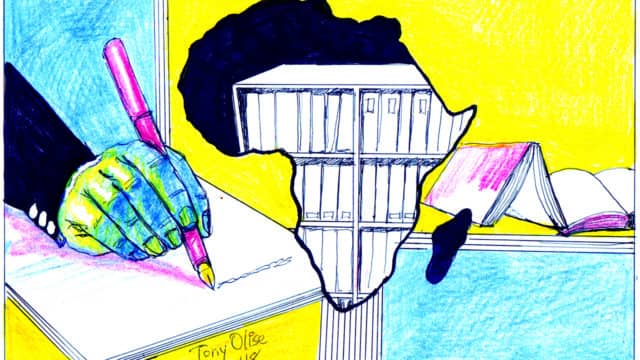Africa’s Best Literature

Amir Taj Al-Sir-Sudan Events
I recently read, on a website called Reader’s Zone, in English, a long report on what was called: the fifty best novels in African literature, throughout history.
That group mentioned by the author of the report, whose name is Nora Wilson, included famous African novels in world literature, and others that are not so famous, and may be famous abroad, but we have not received translations of them.
This is something to be expected, because not everything that is written spreads widely, or reaches all people, and we are all shocked from time to time to meet a writer whom we did not know before, while he is well known in his country and in other countries.
Among those whose works were also mentioned in the Best Report was the famous Nigerian writer Chimanda Ngozi Adichie, who is from a relatively recent generation, and gained much fame when she published her novel “Half of a Yellow Sun,” the story of a young boy who started out as a servant in a house, and set out after his ambition to achieve something.
It is not an ordinary novel, it tells a story and the matter ends, but it takes the reader behind the African pain, enters various corridors and passages, and learns about the characteristics of the continent, the most important of which are poverty, hunger, and disease.
It is known that epidemics were, and still are, a feature of the African continent, and there are in preventive health books for scholars, and on many sites on the Internet, a number of urgent vaccinations that must be taken by everyone who wishes to travel to an African country, and the truth is that this is not a luxury but an urgent necessity.
Ngugi Wa Thiong’o, the great writer, whose name is always mentioned in Nobel Prize nominations, is also present. He is present with two novels that I have frankly not read, but I know Ngugi, and I read to him what I found of what the poet Saadi Yusuf translated. I just honestly mention that I did not like his method, or it did not attract me and make me eager to acquire his books and read them, even in English.
This, of course, is not a disparagement of the writer’s ability, but rather things that are subject to the taste of the recipient.
I was also pleased with the presence of a novel by a young writer, “The Fishermen” by Nigerian Chigozi Abioma, which is the writer’s first novel. It talks about a family whose boys fish in a shallow lake, while also focusing on the tragedies and backwardness of the African continent.
What I did not realize was that there was no work by Tanzanian Abdul Razzaq Qarneh, who won the Nobel Prize two years ago, and I personally liked his way of writing. He is a truly different writer.
Finally, it is not, as I said, a lesson imposed on everyone and they must memorize it. It is merely perceptions, suggestions, or enthusiasm for certain literary works, on the part of those who always write the best reports.
We, as readers, have our own opinion about choosing or not choosing, whether we like a work or not, and literature is a vast ocean that accommodates everyone’s opinions.



